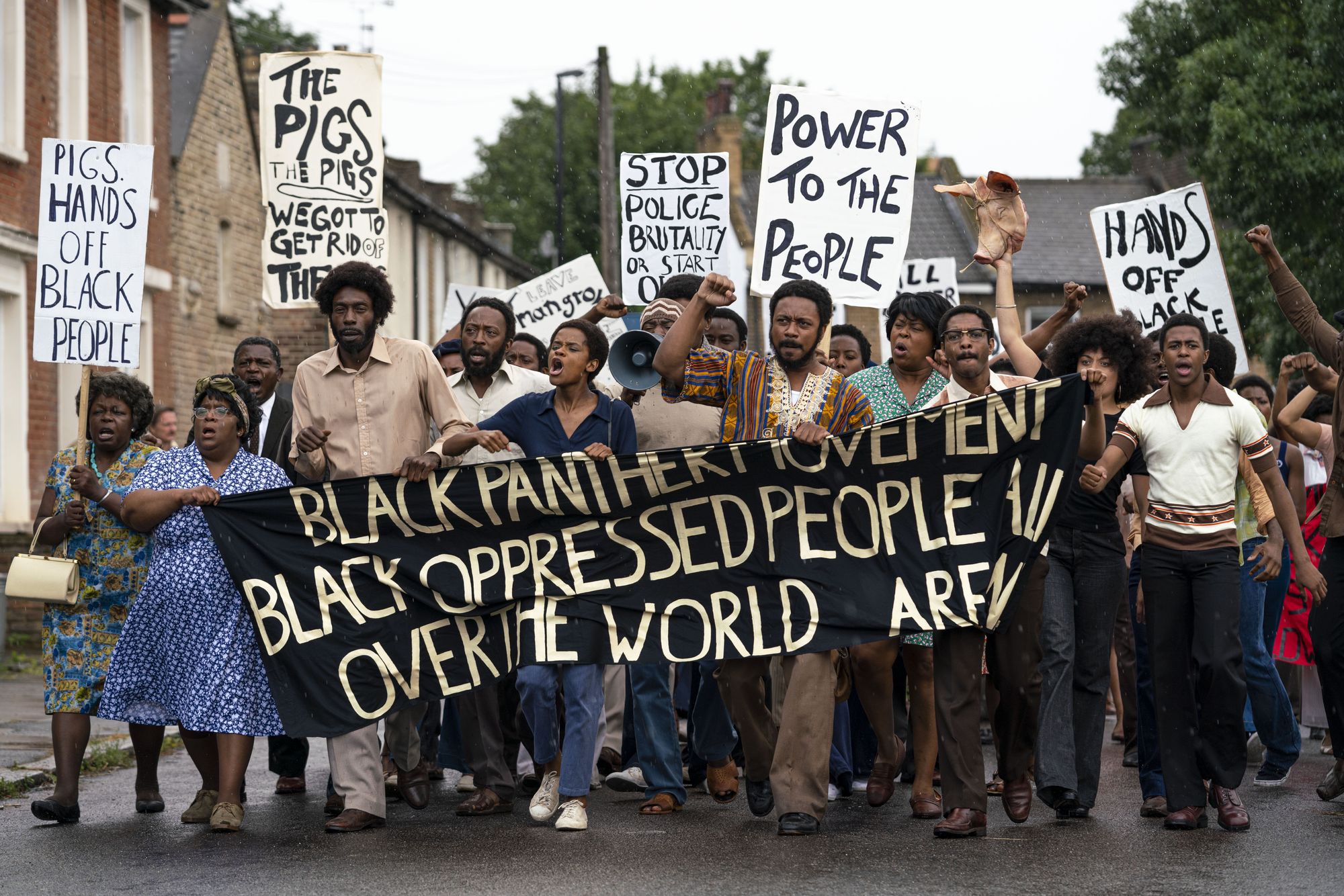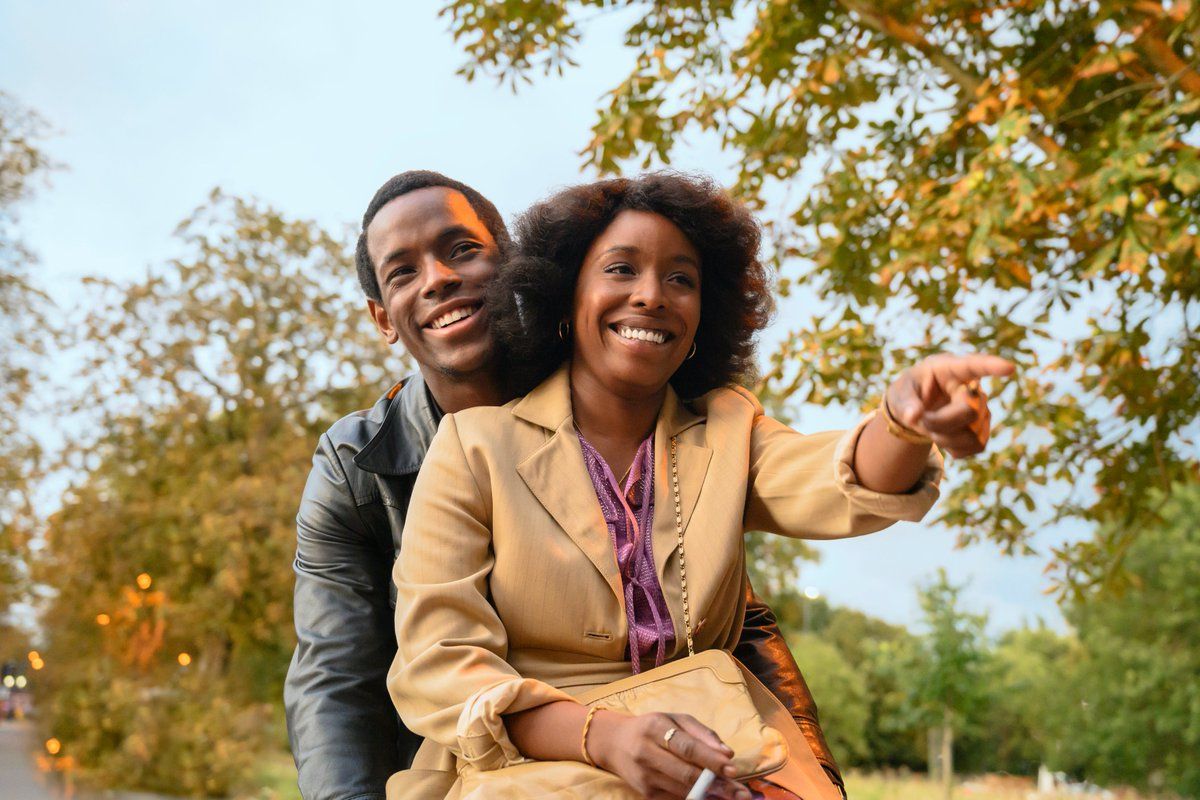By Jake Kuhn, Third Year, Film & Television
“They sit looking at their menus. Brandon steals a moment, eyes tracing over Marianne’s fingers playing with the edge of her menu. The flutter of her lashes. Nipples ghosting her dress. A ring indent around her wedding finger, the shrink of skin.”
This excerpt from the script of Shame (2011), written by Steve McQueen and Abi Morgan, showcases a careful focus on small details. In an intimate character study such as Shame, time dedicated to revealing character traits, no matter how small, feels commonplace.
However, in McQueen’s career, he has managed to include and even hold on these types of close-ups in increasingly larger, more action-driven films (Widows (2018), for example). Typically, he uses them as either visual metaphors to emphasise the action or themes in preceding scenes, or to work as useful character development.
At LFF 2020, two films from Steve McQueen’s new series, Small Axe (2020) were shown: Mangrove (2020) and Lovers Rock (2020). Mangrove takes place in 1970 and tells the true story of the first judicial acknowledgement of racial hatred in the Metropolitan Police. Watching the scenes in which Frank Crichlow’s (Shaun Parkes) restaurant, the titular Mangrove, is raided, abused and destroyed by a cruel, racist Metropolitan Police chief is heart-breaking. The action is brilliantly choreographed and photographed, with each police officer feeling overbearing within the frame and each smashed plate feeling particularly brutal.

The shot that affected me the most in this sequence, however, was a close-up of a rocking colander on the floor of the wrecked downstairs kitchen. McQueen holds on it for an almost uncomfortably long time, letting the backwards and forwards rocking slow down to a stop; the sound eerily reminiscent of a heartbeat. This shot alone conveyed the oppression of the police force in a much more striking way than any of the filmed sequences of their actual brutality.
The reason I am focusing on McQueen’s small details is because Lovers Rock feels like the first time that McQueen has had the means and time to make a film that is solely about the small details. Largely plotless, the film concerns a house party in 1980s West London and is a truly joyous experience. With a beautifully crafted Reggae soundtrack, cheap beer and lit with orangey summer shades, it evokes a yearning for simpler times.

McQueen allows us to sit back and watch his protagonists dancing. The camera lingers lovingly on the curves of party-goers as they slowly sway to Janet Kay’s ‘Silly Games’. This dance sequence in particular lasts close to ten minutes and helps us understand our characters’ innocence and kindness in a way that most directors struggle to show in ninety minutes.
McQueen then contrasts this joy by adding quick glimpses of the outside world’s racism: a quick shot of four white children looking suspiciously at the house playing loud reggae music, or a protagonist’s encounter with his boss, who appears to be a signifier of systemic racism. Just like the rocking colander, these small details build to summon a feeling conveying the claustrophobia of racism without actually showing it. Whereas the rest of Mangrove’s plot feels more didactic in its approach, McQueen uses Lovers Rock to demonstrate the power of his small details in exposing truth.
This Black History Month, let's celebrate Black joy
"Rocks" is a heart felt depiction of human behaviour through a teenager’s eyes
Lovers Rock, at 68 minutes, may feel like more of a novella than a novel, but it’s beautiful, evocative and guaranteed to make you smile. Seeing the faces of the small crowd on the dance floor as McQueen drops the needle on ‘Kung Fu Fighting’ is worth price of admission alone.
Featured: IMDb
Will you be watching Mangrove or Lovers Rock?








